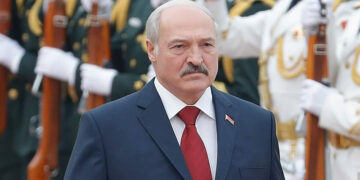 Manufacturing giant Rolls-Royce has said the mid-air failure of one of its Trent 900 engines on a Qantas superjumbo had led to costs of £56m.The explosion in the engine forced an emergency landing of the A380 in November last year.The one-off cost contributed to annual pre-tax profits dropping 76% to £702m in 2010 from £2.96bn.Foreign exchange costs and interest rate and fuel hedging contracts also contributed to the profit fall.But the Derby-based company said that underlying pre-tax profits – which strip out one-off costs – were up by 4% to £955m in 2010 and were a better indication of its performance.Rolls said a “rapid and effective response” from all involved in the Qantas incident had helped it to identify the fault and return the Trent 900 engine to normal service within weeks.
Manufacturing giant Rolls-Royce has said the mid-air failure of one of its Trent 900 engines on a Qantas superjumbo had led to costs of £56m.The explosion in the engine forced an emergency landing of the A380 in November last year.The one-off cost contributed to annual pre-tax profits dropping 76% to £702m in 2010 from £2.96bn.Foreign exchange costs and interest rate and fuel hedging contracts also contributed to the profit fall.But the Derby-based company said that underlying pre-tax profits – which strip out one-off costs – were up by 4% to £955m in 2010 and were a better indication of its performance.Rolls said a “rapid and effective response” from all involved in the Qantas incident had helped it to identify the fault and return the Trent 900 engine to normal service within weeks.
The group had paid out for most of the service and support costs and settlements to affected customers, but may face further “modest” costs on top of the £56m, Rolls-Royce added.”This was the first time an event of this nature had occurred on a large civil Rolls-Royce engine since 1994,” it added.Analysts say that it is difficult to quantify the potential long-term impact of the incident, which could lead plane manufacturers to turn to alternative engine makers such as GE.Qantas grounded its six A380s for intensive safety checks after the explosion on 4 November punched a hole in the wing of a Qantas flight from Singapore to Australia.Qantas resumed limited A380 flights to London in late November but its trans-Pacific flights were suspended for longer as the journey requires greater engine thrust – BBC












